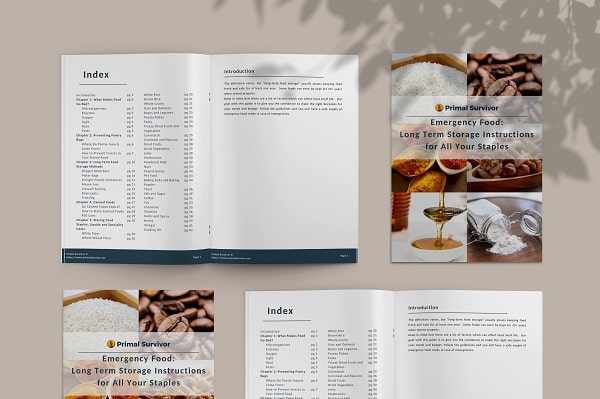Most people would consider the idea of eating raccoon unappealing, but it’s actually more common than you might think. People have been successfully eating raccoons for centuries, and many still do.
Even if the idea of eating raccoon is unappetizing to you, you never know when it might be the only option available. You’ll want to be prepared for that day, however unlikely.
Dining on raccoon might be outside your usual cuisine, but there’s no need to panic. With an open mind and some precautionary measures, these masked critters can be downright delicious.
Is Raccoon Meat Safe to Eat?
Yes, eating raccoon is safe, for the most part. In fact, raccoon as table fare was once extremely popular.
Although eating raccoons is less popular today than it was years ago, it wasn’t all that long ago that hunting raccoons was just as popular as hunting squirrels or ducks. The fact that raccoon hunting has been popular for such a long time is a good testament to its safety.
Baked raccoon was once a holiday favorite in the South. Many historians speculate that the diminishing popularity of raccoon meat and other wild game came about when meat processing began, making animal husbandry a more affordable option.
In some parts of the world, however, eating coon meat remains quite popular. As a matter of fact, several towns across the country continue to feature festive days using raccoon meat as their prime entree. The Delafield Coon Feed in Wisconsin and the Gillett Coon Supper in Arkansas are both perfect examples.
Preparing Raccoon Safely
Raccoons are known to carry rabies, raccoon roundworms, leptospirosis, giardiasis, and salmonellosis. Therefore, when dressing and skinning a raccoon, it’s always a good idea to wear gloves to prevent any transmission of these diseases.
Raccoon roundworms, leptospirosis, and salmonellosis are most often spread through urine and feces, which would most likely be transmitted during the skinning and dressing process. Ingesting fully cooked raccoon shouldn’t be an area of concern for these particular diseases.
Additionally, using proper cooking techniques and ensuring the internal temperature of your meat reaches at least 165 degrees is sufficient to kill any life-threatening organism, such as giardiasis or rabies.
Still, there are some concerns regarding the consumption of urban raccoons today. Given the modernization of our country, the urban raccoon’s biome often includes trash cans and waterways that have been infiltrated by fertilizers, pesticides, and other industrial chemicals.
While this really wouldn’t be any worse than other wild animals, it’s better to eat raccoons found in the wilderness than in urban areas.
Is Raccoon Meat Good For You?
Yes, raccoon meat is really good for you! Its calorie-to-protein ratio is excellent. One three-ounce serving size of raccoon provides 216 calories, 12 grams of fat, and almost 25 grams of protein. It’s also a good source of Vitamins B6 and B12, potassium, calcium, iron, and magnesium.
What it lacks in calories, it makes up for in vitamins and minerals. When cooked safely and correctly, it makes a healthy and nutritious meal, despite any naysayers.
What Does Raccoon Meat Taste Like?
Raccoon is often described as a cross between goose and venison. It’s also been described as being similar to lamb or dog. Coon is a savory meat with a mild gamey taste, but it’s by no means overwhelming. Like squirrel meat, it can be a bit on the tough side, so it’s best to tenderize the meat if possible.
When cooked properly, it’s more tender than chicken or turkey, but also greasy. Unlike some wild game, the raccoon does not have any repulsive smell or taste.
The way you cook a raccoon largely determines the magnitude of its gaminess. Removing as much of the excess fat as possible can reduce the gamey flavor. Additionally, marinating any wild game, including raccoon, in acidic marinades can also reduce gaminess.
Is it Legal to Hunt Raccoons?
The legalities of raccoon hunting will vary from state to state. In some states, it’s perfectly legal, with no restrictions, and in other places, such as Washington, D.C., completely prohibited. Most states require some sort of hunting and trapping license. Furthermore, because raccoons are a protected species as a fur-bearing animal, you can only hunt them during certain seasons.
Be sure to check your local and state laws to find out more about your location-specific area and its regulations.
How to Hunt Raccoons
Because raccoons are nocturnal animals, most raccoon hunting occurs during the night. Some hunters use predator calls, while others use coon dogs. Spotlighting and baiting are also frequently used.
Raccoons are opportunistic feeders, so you’re sure to find them around areas that have fruit or nut trees where they like to forage for food or places that are dense with insects, frogs, fish, or other small prey.
Small caliber rifles, such as a .22LR, are your best option for dispatching raccoons. However, make sure you use ammunition specifically designed for varmint or predators to guarantee penetration of the coon’s tough hide and protective fat layer. You’ll also have to be fairly close, given the lack of power a .22 has.
Some hunters even use air rifles, but you’ll need at least a .25 to .30 caliber. It’s highly inadvisable to attempt dispatching a coon with a .177 caliber, which is the most common air rifle. Most hunters consider this inhumane and would only cause injury and suffering to the raccoon.
If bow hunting is legal in your state, many avid hunters recommend the G5 blunt broadheads for quick dispatch and to prevent burrowing. While most bowhunters opt for compound bows, there are still a few elite bowhunters that use recurve bows.
It’s also possible to trap coons using human food since they’ll eat just about anything. Once you’ve obtained your coon, you can skin and dress it for meal preparation.
How to Prepare Raccoon Meat
Raccoon furs can catch a decent price, so a clean skin can even make you an extra buck or two in addition to the meat you’ve procured. You’ll want to make sure you have a good skinning knife for the task, as coon hides are pretty tough. Once your coon is skinned, you’ll need to dress it and remove the musk glands from both arms and legs.
This single step makes all the difference between a good-tasting coon and a bad one. Leaving these glands in place can cause your meat to taste bitter. Additionally, you want your meat as clean as possible. The more fat you can remove, the less gamey the taste will be.
Once your raccoon is skinned and dressed, you can remove the head, tail, and feet. Then cut the carcass in half from the shoulders to the tail. Beyond that, you can quarter it to your liking. Finally, rinse all your meat in clean water and either prepare it to cook or freeze it for later.
There are many ways to prepare raccoon meat, and you can find plenty of recipes all over the internet. For quick and easy preparations, you can pan-fry the raccoon or make a barbecue raccoon. Pressure cooking also does a great job at tenderizing the meat and it’s an excellent choice for just about any gumbo dish.
For more elaborate ideas, try raccoon quiche or roast raccoon with stuffing.
Now that you know raccoon meat is safe to eat, will you go the way of Marvel star Anthony Mackie and add it to your Thanksgiving table or save it for a worst-case scenario?



I live in the south, most old timers have eaten plenty of raccoon, and still do, along with groundhog, squirrel, turtles, even possum. Young people need to learn to hunt, it’s a vital skill that could save your life